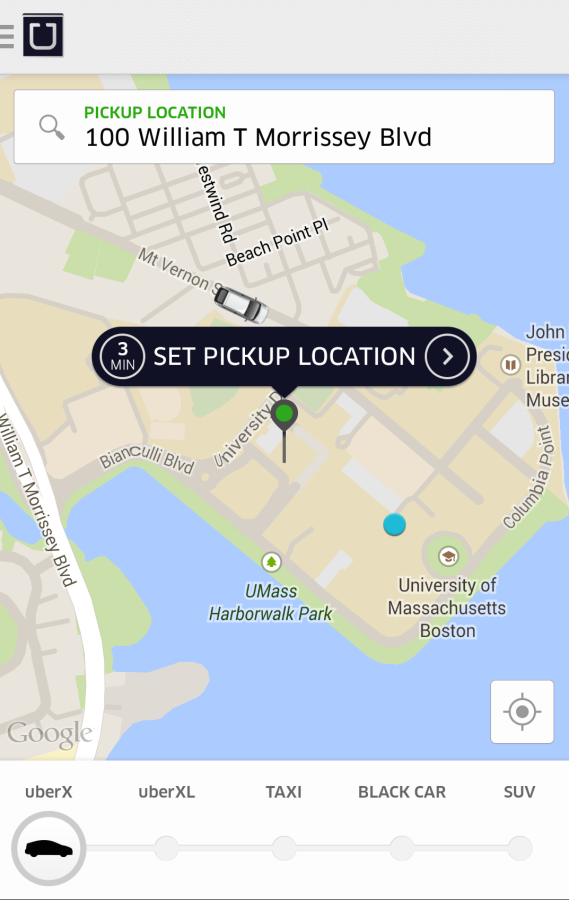Starting early this summer, taxi drivers in Boston, and indeed in affected areas around the nation, have been voicing their dissatisfaction with the services Uber provides. Uber, the smartphone app car sharing company, has been accused by taxi drivers of operating with a less than optimum number of regulations, thus giving the company an unfair economic advantage.
The New York Times report exposing the manner Uber uses to scout and poach potential employees from their competitors—like Lyft—did very little to help matters, especially coupled with the Cambridge License Commission’s hearing held to ascertain whether or not the City of Boston should impose more stringent rules for car sharing apps. Not long after, the company was the subject of a class action lawsuit filed by Shannon Liss-Riordan, a Boston labor lawyer who claimed that Uber was exploiting its drivers.
Taxi union representatives also assert that riding in an Uber car is less safe than driving in a licensed cab, and make the claim that Uber “preys parasitically on established taxi services without paying for them and without obeying laws designed to protect taxi customers.” Their complaint goes on to question the pricing tactics of Uber, stating that “Boston taxi rules protect consumers—and less wealthy customers—by establishing uniform fares,” while describing Uber as “another industry that has saturated the streets of Boston with unlicensed, unregulated vehicles—illegal vehicles—that determine whatever the rate is based on the day and time or whatever they feel like.”
In spite of these allegations, most of which are rightfully very worrying, the questions remain: Is Uber having a negative impact on the transportation industry? And is Uber an improvement on licensed conventional taxi cabs for commuters? This writer believes the former to be false, and the latter to be the undeniable truth, respectively.
The argument that Uber is more dangerous for passengers than conventional taxi services are is simply absurd. Despite leveling the accusation, the taxi union offers little to no proof that this is the case. It is also worth noting, as Boston Globe writer Simon Waxman pointed out in his piece, that the taxi drivers seem to have no problem with the safety issues posed by limousine services which, like Uber, are unregulated. According to a report commissioned by the City of Boston and released in October of last year, employees of the Hackney Unit, which is the unit in charge of regulating taxis in the city, claim to receive over 12 complaints about cab drivers daily.
Having been riding in Ubers almost since I discovered that such a service existed, I’ve never felt any less safe in one than I have in taxicabs. Judging by the growing popularity of the company, many riders must feel the same way.
A big reason for my patronage of Uber, and concurrent shunning of licensed cabs, is their ability to keep up with rider demands during peak hours. According to the previously mentioned report, cabs respond to only 78 percent of dispatch requests in Boston. That number is higher in places like Back Bay, Jamaica Plain, Charlestown, Brighton, Beacon Hill, and the South End. Meanwhile, for places such as Roxbury, Mattapan, and Dorchester, that figure drops substantially. Isn’t it funny how response figures for more affluent neighborhoods are significantly higher than others? I wonder why that is.
Meanwhile, according to a paper out of UC Berkeley by Lisa Rayle, Susan Shaheen, Nelson Chan, Danielle Dai, and Robert Cervero, users of ride-sharing apps are almost always picked up less than 20 minutes after calling for a vehicle.
The other allegation—concerning the manner with which Uber carries out their pricing—leveled at the company by the disgruntled taxi drivers is even more ridiculous. Earlier this year, Uber slashed its prices in Boston by 25 percent. According to a Boston.com article, “The change would make an UberX trip from Copley Square to Harvard Square only $10. A taxi, the company says, would cost $17.”
It’s understandable that taxicab services want to play on an even footing with Uber and similar companies, but that simply means that taxi services need to step up their efforts. Consumers are flocking to Uber because they are providing a service which customers are almost universally satisfied with. Unfortunately, the same cannot be said of conventional taxi services.

